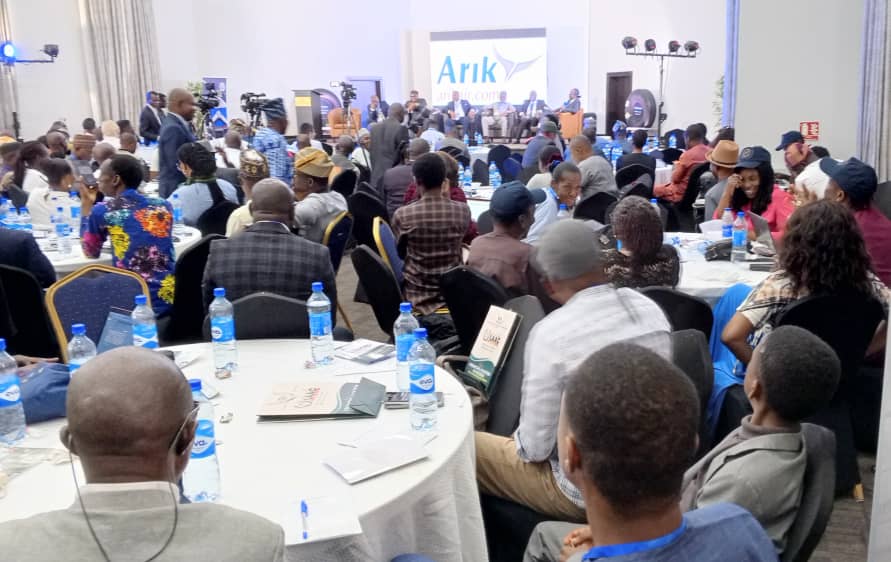Smart Financing as New Flight Path to Keep Nigerian Airlines Airborne

In the face of mounting economic headwinds, currency volatility, and rising fuel costs, Nigerian airlines have been urged to abandon outdated funding models and embrace innovative financial strategies to ensure resilience, growth, and long-term sustainability.
This call to action came from aviation finance expert Mary Olowo-Sokeye, Chief Financial Officer of InterGuide Group, who represented Dr Gabriel Olowo, President of Sabre West and Central Africa, at the 29th Annual Conference of the League of Airport and Aviation Correspondents (LAAC) in Lagos.
Delivering a presentation titled “Financing Options for a Sustainable Aviation Future,” Olowo-Sokeye identified five strategic financial pathways that could unlock capital, manage operational risks, and position Nigerian airlines for a more competitive future: equity financing, debt financing, sale and leaseback, export credit agency (ECA) financing, and aircraft leasing.
“Aircraft are not cheap. Neither is their maintenance, or the innovation needed to run them,” she told the gathering of industry stakeholders. To fund aviation sustainably, we must review our financial health, understand market conditions, and explore creative funding mechanisms.”
Equity Financing – Expansion Without Debt
Olowo-Sokeye described equity financing as a means for airlines to raise long-term funds by offering ownership stakes to investors.
She explained that this route was particularly beneficial for startups and smaller carriers with limited borrowing capacity, as it strengthens shareholder value without the burden of interest repayments.
“Equity financing is ideal for expansion,” she noted. “It allows strategic partnerships and avoids the risk of heavy debt obligations.”
Debt Financing – Leveraging Institutional Loans
Debt financing, though traditional, remains essential for major capital investments such as aircraft purchases. Olowo-Sokeye said corporate and institutional loans—often backed by collateral—can offer tax deductions and flexible repayment structures.
However, she cautioned that airlines must maintain strong liquidity and cash flow to withstand interest rate fluctuations and currency risks.

Sale and Leaseback – Liquidity Without Losing Control
Highlighting a rising trend in the sector, Olowo-Sokeye pointed to sale and leaseback deals as a way for airlines to free up cash while retaining operational control of aircraft.
“Sale-leasebacks provide liquidity and flexibility,” she explained. “But they can be expensive in the long term, with high lease payments and the loss of asset ownership.”
Export Credit Agency Financing – Government-Backed Leverage
Describing ECA financing as “an underused opportunity,” she said Nigerian airlines could access international loans at lower interest rates if backed by government guarantees.
“This can be transformative,” she asserted, “but it requires close collaboration with foreign credit agencies and a rigorous approval process.”
Aircraft Leasing – Flexible Fleet Access
For airlines seeking to modernise without the full cost of ownership, leasing remains a practical choice. Olowo-Sokeye outlined three main structures – wet, dry, and hybrid leases – each offering varying levels of operational responsibility.
While leasing allows frequent fleet renewal and avoids heavy upfront investment, she warned it exposes airlines to foreign exchange risks and dependency on lessor compliance.
A Call for Forward-Thinking Financing
In her closing remarks, Olowo-Sokeye urged airline executives and regulators to adopt risk-adjusted financing models and expand access to international credit facilities.
“Sustainable financing in aviation isn’t just about raising money,” she said. “It’s about securing the sector’s future while navigating inflation, fuel volatility, and a weakening naira. The tools are available. It’s time we build a future-ready aviation sector powered by smart financing.”
With these strategies, industry insiders say Nigeria’s aviation sector has the opportunity to chart a progressive path – provided stakeholders act decisively, plan strategically, and adapt to shifting economic realities.







